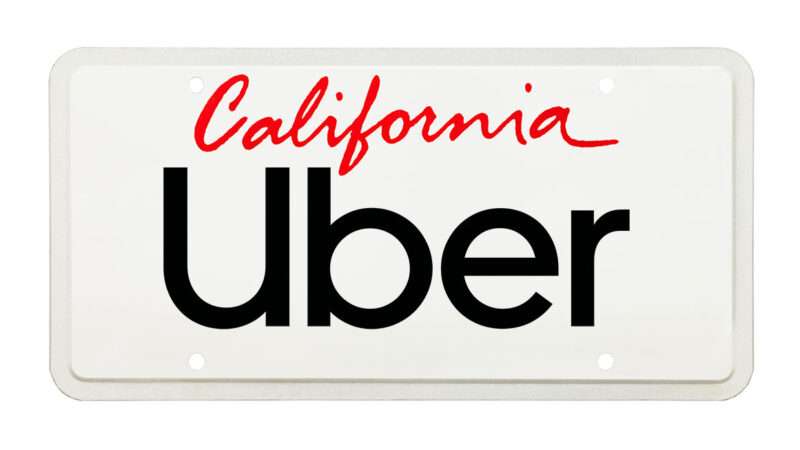

California voters in November said no to rent control, increased property taxes, diversity quotas in government and college admissions, and burdensome regulations on dialysis clinics. But they said yes to Proposition 22, which allows Uber and Lyft drivers to remain independent contractors, putting the kibosh on state legislators' attempts to control how those companies classify their workers.
Uber and Lyft were among the countless companies (and workers) who stood to suffer from Assembly Bill 5, a 2019 law aimed at forcing companies across numerous industries to convert their freelancers into employees. The latter category comes with a spate of government-mandated benefits, including health care, paid time off, compensation for expenses, and a minimum wage.
But the lawmakers who passed A.B. 5 ignored the many benefits of contractor status. Foremost is flexibility: The gig model means ride-share drivers can choose their own hours and work when they please—an arrangement that would be replaced by shift work should those companies be forced to classify every driver as an employee.
Gig work also entails lower barriers to entry. As it stands, virtually anyone is able to drive for Uber and Lyft if he meets a few basic requirements, giving economically vulnerable populations an opportunity they might not otherwise have. A study conducted by Beacon Economics LLC found that if Proposition 22 had not passed, Lyft would have had to lay off at least 219,547 drivers in the Golden State. That appears to have mattered more to workers than to legislators. Among ride-share drivers in California, 60 percent favored Proposition 22, according to a poll commissioned by the publication Rideshare Guy.
Thanks to California voters, drivers will join a slew of other professions that have been exempted from A.B. 5 in the last year after legislators conceded that their one-size-fits-all approach threatened to hurt the very workers it was supposed to help. That includes hairstylists, real estate agents, insurance agents, lawyers, accountants, doctors, dentists, artists, musicians, photographers, journalists, and translators. In fact, as legislators kept granting exemptions, A.B. 5 targeted very few businesses other than Uber and Lyft.
A.B. 5 was crafted in response to Dynamex Operations West v. Superior Court of Los Angeles, a 2018 California Supreme Court case that established a rigorous test for labeling a worker as a freelancer instead of an employee. The case specifically addressed truckers, who have since been exempted from the legislation.
Read Entire Article Here: Reason Magazine Articles
via IFTTT
